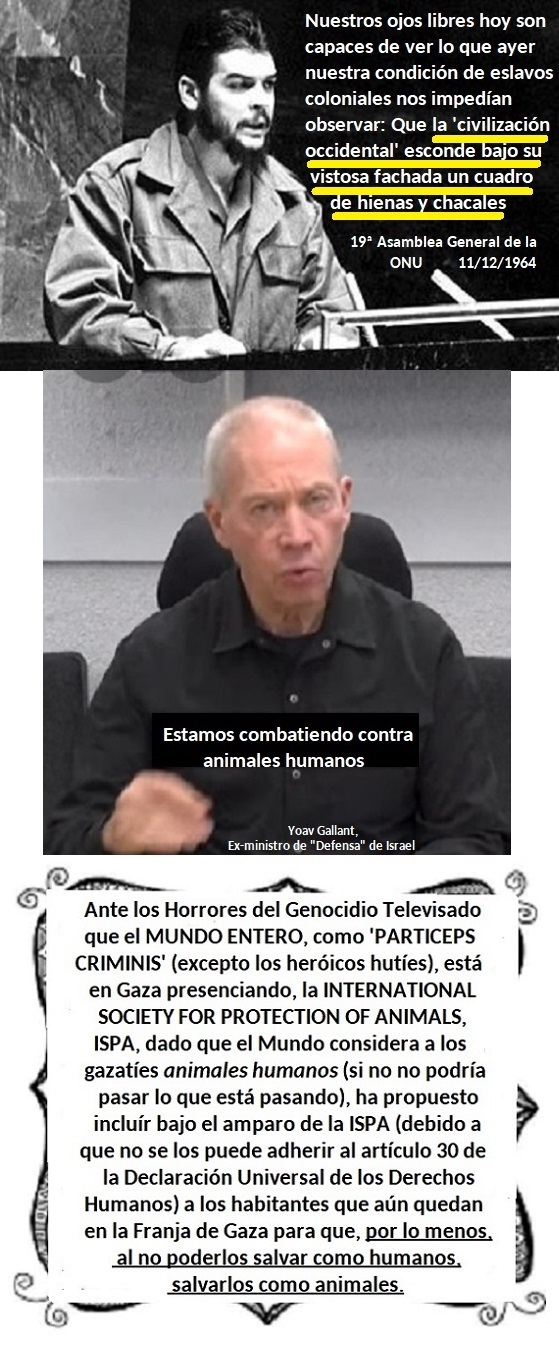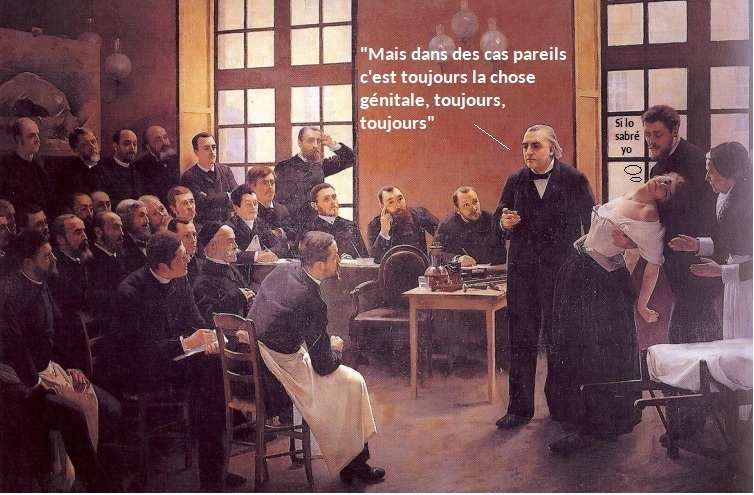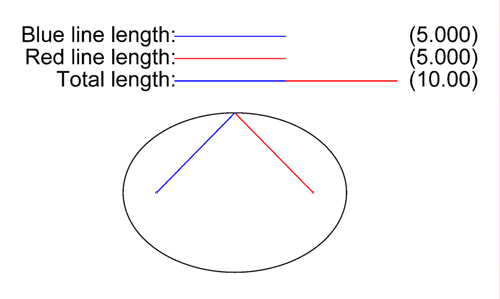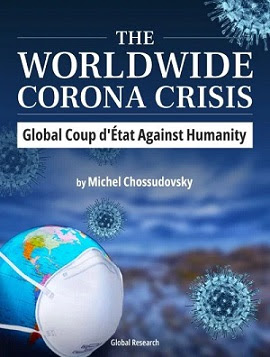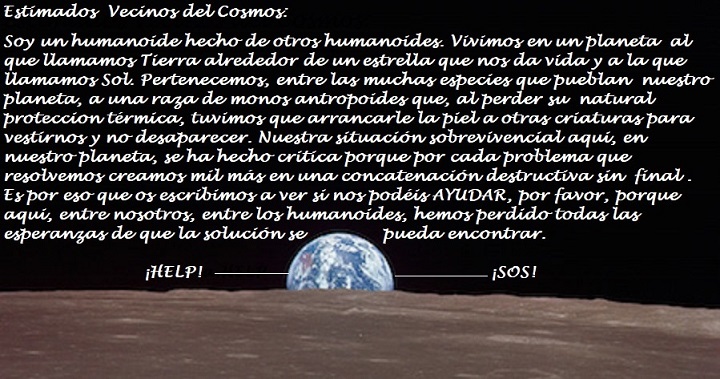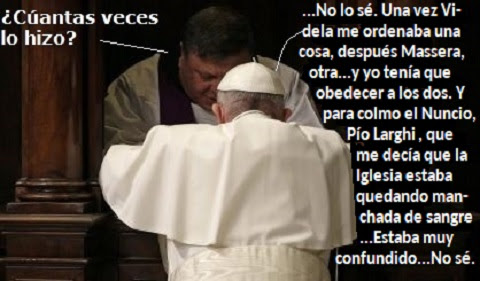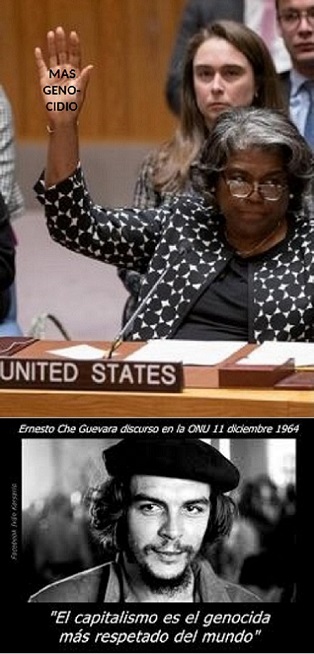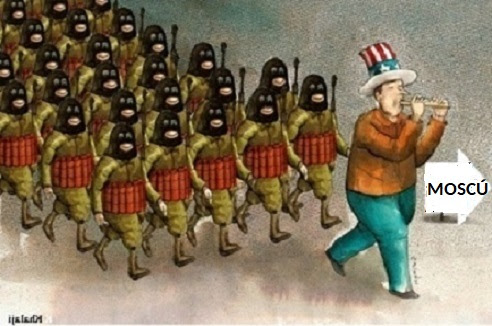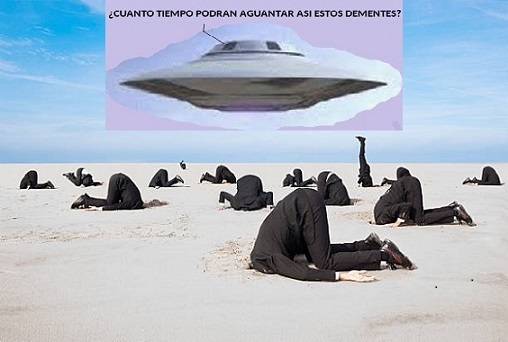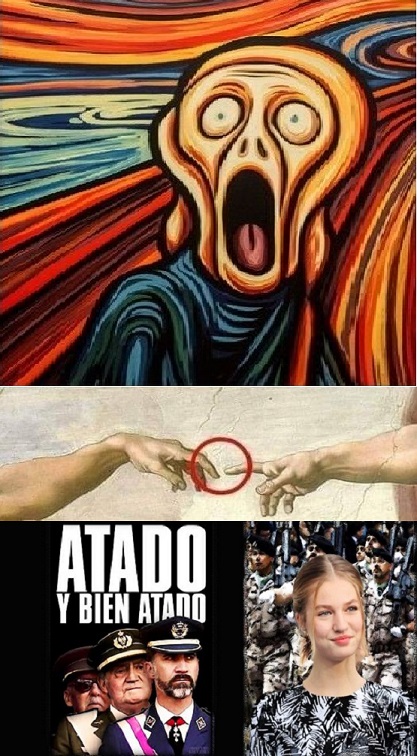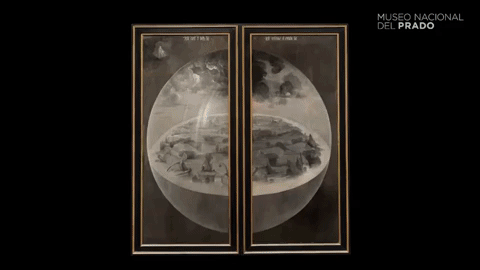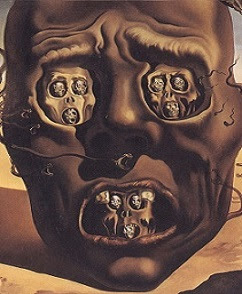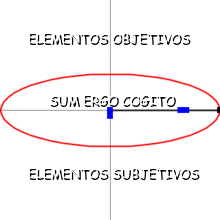es que, cuando llegaba un paciente a su consulta
o el trauma que fuese, lo recibía dicíendole:
¿"Por que se ha hecho usted 'esto' a sí mismo"?
El paciente, obviamente, de entrada, quedaba un tanto desconcertado desarticulando así la vulnerabilidad de su aparatus defensivo en la que se producia un 'agujero' en la barricada de sus resistencias, 'hendidura' que G. sabia aprovechar muy bien con la carga de toda su caballeria analitica y diagnosticativa.
Georg Groddeck (1866-1934) occupies a special place among those who can be regarded as Freudian dissidents. Groddeck had indeed already worked out his own theoretical vision when he came into contact with Freud who, impressed by this original doctor's ideas, prompted him to regard Groddeck as one of his own group.
In fact, the first contact between Freud and this Baden-Baden doctor went as far back as 1912, when Groddeck had published a highly critical analysis of psychoanalysis. A few years later Groddeck renewed his contacts with Freud to apologise and acknowledge his poor understanding of psychoanalysis at the time. This was the first letter of a long correspondence between the two. It is from Groddeck that Freud borrowed the concept of Self (id), by considerably modifying however the direction he gave this term.
For Groddeck, das Es represents the unknown force in control of people, the source of all physical diseases. Freud turned it into a psychic authority, the source of all impulses.
Though never an analyst, Groddeck attended psychoanalytical congresses and meetings. He often shocked the assistance by his description as a wild analyst. Ferenczi was extremely impressed by Groddeck's ideas and they often discussed the latter's own ideas on techniques known as active .
Georg Groddeck spent half his life in the nineteenth century, half in the twentieth. Born in 1866, ten years after Freud, he died in 1934 in Switzerland, soon after fleeing the Gestapo. Shortly before that, he had sent an obscene telegram to the newly elected Hitler.
He was a general practitioner of fiercely independent mind and unusually wide philosophical and literary interests. He loved and scoffed at his calling — the essential quality of being a physician, he said, was “a propensity for cruelty which has been just so far suppressed as to be useful, and which has as its warder the dread of causing pain” (p. 4).
Groddeck was a pupil of Schweninger, Bismarck’s personal physician. Schweninger saw the doctor as merely a catalyst to set off a therapeutic process. But Groddeck had his own style: “Nearly as great as my aversion to the surgeon’s bloody trade is my dislike of the assorted poisons of the pharmacopoeia, and so I came to massage and to mental treatment; these are both not less cruel, but they adapt themselves better to any particular man’s desire to suffer” (p. 5).
Probing more and more into his patients’ minds, he uncovered the basic principles of symbolization, resistance, and transference, although he did not then label them as such. In fact, he wrote an article in 1912 rather harshly criticizing psychoanalysis; the article was written without the benefit of much knowledge, an attack “launched from a position of prophetic envy, so to speak” (Groddeck, 1977, p. 32).
In 1913 he began to read Freud’s works seriously. Reluctantly but forthrightly – for he was simultaneously proud of originality and honesty – he thereafter called himself a disciple of Freud’s.
Yet he was by no means a slavish disciple. Before learning about psychoanalysis, he had come to the conclusion that men may believe they are living their own lives, but the are actually “lived” by an unconscious “something,” a great force, the mystery of life, called “Gottnature” by Goethe.
Because it was ineffable – in fact a fiction, he said, merely a way of thinking about man – Groddeck found it convenient to borrow the term “It” from Nietzsche. Consciousness, the ego, the self, physical illness, neurotic symptoms, and the great or vile works of man were basically manifestations of the It.
The It was protean, could divide up, work one portion against others, experiment, build up, be playful, be destructive – finally destructive unto death.
The task for the physician in all illnesses (for Groddeck did not believe in the separation of the organic from the mental) was to gain access by any means to the patient’s It, to influence it in its ways. He himself sought access through the use of diet and massage, and in the process of interpreting symbol, transference, and resistance. But the actual process of cure remained, as he admitted over and over, unknown….
Freud, in his delineation of what would become known as the structural theory, acknowledged his debt to Groddeck, but agreed to the translation into English of Das Es into the word, Id (1923, p.23). (See, Spruiell, 1981a, VS81a). But privately he cautioned from the beginning that there was no need to extend the concept of the dynamic unconscious into philosophical and mystical realms. The differences about the translation of Das Es into “It” for Groddeck and “Id” for Freud persisted. Despite these cautious distinctions, and despite Groddeck’s independence, Freud never lost a close interest in him….
…Groddeck serves a function in reintroducing us to the excitement, terrors, richness, comedies, tragedies, earthiness, and joyfulness of the private worlds of conscious and unconscious fantasy…. "The Book of the It" is rich with examples of universal unconscious fantasies from childhood – precisely those private fantasies and acts that the public observer and the private parent is apt to miss (”mothers really understand very little about their children” [p. 25])….
“All these phenomena can be laid bare by the process of free association, by the recognition of the symbol, by understanding dreams. The dream is the speech of the unconscious [p. 37].)
By recognizing the ubiquity of resistance and transference. But the laying bare does not produce final answers, and the nature of the unconscious is only barely comprehensible, only partly bearable to comprehend. What a toilsome business it is to speak about the Id. One plucks a string at hazard, and there comes the response, not of a single note, but of many, confusedly mingling and dying away again, or else awakening new echoes, and ever new again, until such an ungoverned medley of sounds is raging that the stammer of speech is lost. Believe me, one cannot speak about the unconscious, one can only stammer, or rather, one can only point out this and that with caution, lest the hell brood of the unconscious world should rush up out of the depths with their wild clangor” (p. 33).
Georg Walther Groddeck was born on October 13, 1866, in Bad Kösen an der Saale, Germany, and died on June 11, 1934, in Knonau bei Zürich, Switzerland.
Groddeck detailed his upbringing in his autobiographical writings. A saying of his mother's, "Big ears mean great accomplishments," became his life motto. The youngest of five children in a family of aristocrats, he was educated at the school in Schulpforta where Gotthold Lessing, Otto Rank, and Friedrich Nietzsche also studied.
He was a great admirer of Nietzsche and Johann Wolfgang von Goethe, among others. He studied medicine with Ernst Schweninger, Otto von Bismarck's personal physician, in keeping with a Romantic tradition of medicine based on experience, in contrast to the scientific mindset of his era. As a result of his exceptionally powerful personality, Groddeck became a renowned doctor whom patients throughout Europe came to consult about somatic and psychosomatic illnesses.
He initially used hydrotherapy, dietetics, massage therapy, and psychotherapy based on authority and the power of suggestion; he later refined this approach into a form of psychoanalytic-psychosomatic therapy.
In 1910, during a life crisis, he discovered the writings of Sigmund Freud, and he completed his self-analysis in the course of the 115 lectures on psychoanalysis that he delivered to patients in his clinic between 1916 and 1919. These lectures later became famous.
He began corresponding with Freud in 1917 and met him personally in 1920, at the international psychoanalytic congress in the Hague. Groddeck drew a mixed reception with his presentation at the congress, which he supposedly introduced by saying, "I am a wild psychoanalyst," and in which, associating freely, he spoke of his childhood neurosis.
In 1920 he became a member of the Deutsche psychoanalytische Gesellschaft (German Psychoanalytic Society). But he did not fully integrate himself into the psychoanalytic movement, and he followed his own path whenever personal ties were important and institutional constraints bothersome. He took a skeptical view of the new ego psychology.
Throughout his life he remained involved in sociopolitical activist groups. He refused to accept the National Socialists' reining in of German psychoanalysts after 1933 and ran up against insurmountable problems with them. Finally, he had to take refuge in Switzerland.
In 1917 he put forward his psychoanalytic-psychosomatic agenda in 'Psychische Bedingtheit und psychoanalytische Behandlung organischer Leiden' (Psychic determination and psychoanalytic treatment of organic disorders). Using examples from his clinical work and vignettes from his self-analysis, he described the relationship between somatic disorders and unconscious psychic processes.
In 1921 he published Der Seelensucher: ein psychoanalytischer roman (The soul-seeker: a psychoanalytic novel), a humorous account of the adventures of a psychoanalytic Don Quixote. Groddeck considered this his best work, as did Freud; others complained that it was sexually indecent and unscientific.
With the publication of the The Book of the It (1923/1928), Groddeck became famous. This was yet another extremely personal book: clinically oriented, spontaneous, unconventional. This work was followed by many lectures, articles in the journals Satanarium and Die Arche, and, in 1933, Der Mensch als Symbol: unmassgebliche Meinungen über Sprache und Kunst (Man as symbol: considerations, without pretension, on language and skills). Groddeck's correspondences with Freud and with Sándor Ferenczi are well known. Most of his works are available in translation in many languages.
Groddeck was important above all in psychoanalytic psychosomatics. He was the first to argue for the value of psychoanalysis in theorizing about the mind and for the treatment of not just conversion but all somatic disorders, which he supported with a large amount of clinical data.
His work is still controversial because his method was neither rational nor scientifically rigorous. Instead, he followed the primary processes in both his therapeutic work and his writings. Using this way of thinking, which Hanns Sachs described as a "self-portrait of the unconscious," he presented psychoanalysis as an activity, not a theory.
Drawing on Nietzsche and the critical philosophy of consciousness, he stressed the concept of the id, a concept that Freud took up, but in a modified form. (He advocated saying, "The id thinks in me," and not "I think.")
He recognized the significance of regression, pre-oedipal desires, and maternal transference, and thus had an enormous influence on Ferenczi, with whom he became friends. He was also in contact with Ernst Simmel, Frieda Fromm-Reichmann, and Michael Balint. The educated public and several writers (Lawrence Durrell and Ingeborg Bachmann, among others) took a great lay interest in his work, and the French psychoanalysts Roger Lewinter, Pierre Fédida, Jean-Bertrand Pontalis, Octave Mannoni, and François Roustang were receptive to his ideas for their scientific content.
After having reviewed some of Groddeck's outstanding contributions to psychoanalysis, the author states that Groddeck achieved therapeutic results by reactivating and liberating the unconscious, using everyday language and the new terminology of early psychoanalysis as a means of communication.
Georg Groddeck is the most outspoken representative of the intuitive type of analyst, in contrast to the learned therapist. It would be wrong to call Groddeck an artist—which he was—in opposition to a scientist—which he also was. The true problem of his personality and work is the interrelation of artistic intuition and scientific knowledge.
There are two basically different personality types among analysts, representing two basically different types of human understanding: the intuitive and the learned. The ideal analyst combines both types, as did Groddeck.
The importance of intuitive ability in the personality of the analyst is not clearly recognized in the psychoanalytic literature, perhaps due to an old anxiety about, and defense against slipping back into medieval mysticism. Theodor Reik succeeded in showing that intuition originates when the analyst uses his unconscious as a perceptive organ. Reik gives a psychological explanation and justification of the intuitive unconscious communication which Groddeck used naïvely.
Groddeck allowed his unconscious to erupt freely—almost as if he were constantly in the process of being analyzed. Only after his ideas, impressions and interpretations emerged did he put them into more or less socially approved forms. He seduced his listeners into following him, he encouraged them to abandon intellectual and logical censorship. He did not convince by reasoning or by facts—his evidence was of a different kind. He convinced by experience of evidence, leaving it up to his pupils to put the knowledge thus gained into the framework of science.
The safeguard against the dangers of Georg Groddeck's methods and against losing oneself in wild fantasies is the constant, logical and rational open-eyed observation of the clinical facts.
Freud is not the opposite of Georg Groddeck as a type. Such an approximate opposite is found in the type of person Goethe pictured in Wagner, the pupil of Faust. It is the kind of man who constructs bridges over the unknown and then denies that there is any depth left below them, claiming.
Man is inhabited by the unknown, the unconscious. "In him is an It, something wonderful which regulates everything that he does and that happens to him." For what has breathing to do with our will, what is it that decides how our food is masticated and digested, that regulates the beating of the heart? We are human beings due solely to the wilful act of the All and the It.
As an admirer of Groddeck's, Lawrence Durrell, says in an attempt to explain his philosophy, the It is not a thing in itself, it is a way of knowing, a pathway towards life as a human being, towards the illusion of becoming a personality, an I.
The mother of G. was the daughter of A. Koberstein, a Germanist and teacher of Nietzsche; his father was a spa physician. Groddeck spent his childhood with his sister in their parents' house, which had to be auctioned in 1878 after their father had been ruined by building speculations. Groddeck attended the Alumnat Schulpforta, received his school-leaving certificate in 1885, and then began military training in Berlin. He did his doctorate under Ernst Schweninger, the private physician of both Bismark and Cosima Wagner, and later became his collaborator. Based on Schweninger's methods, Groddeck developed his own form of treatment, which consisted mainly of massage, baths and diet.
In addition to his activities as a physician, Groddeck gave lectures (which he regarded as part of his therapy), initiated the inauguration of a consumers' cooperative and a cooperative building association, and published his writings: the essay Ein Frauenproblem in 1902, an autobiographical novel Ein Kind der Erde in 1905, the story Der Pfarrer von Langewiesche in 1909, the lecture series "Hin zu Gottnatur" in 1909, and Nasamecu - natura sanat, medicus curat in 1913.
Independently of Freud, Groddeck developed a new medical practice, convinced that each disorder of the organism, irrespective of whether it is called psychological or physical, can be influenced by means of psychological analysis. Groddeck served as director of a military hospital during the First World War, but came into conflict with his superiors because of his over-precise and long-drawn-out treatment of the mainly war-traumatised soldiers and was dismissed after only nine months.
Encouraged by his friendship with the Swedish woman Emmy von Voigt, who was to become his second wife, and by his new analytical ideas, Groddeck began his Wednesday Lectures at the sanatorium. His Lectures (first published in 1987 ff. by the GGG in three volumes) consist of a self-analysis, descriptions of life and the everyday, dream interpretations, interpretations of the Bible and of fairy tales; they celebrate the diversity of human life and the expressive forms it takes through the It.
Groddeck wrote to Freud in 1917, confessed his wishful thinking that he himself had discovered the concept of psychoanalysis, and sent him his text Psychische Bedingtheit and psychoanalytische Behandlung organischer Leiden, which is regarded today as a pioneering work of psychosomatics. "I have to claim you", Freud replied, "I have to assert that you are a splendid analyst who has understood for ever the essential aspects of the matter."
Groddeck courted Freud in his Letters (Freud-Groddeck correspondence, edited by the GGG 2008) and sent him manuscripts which Freud allowed to be published in the journals of the Psychoanalytische Vereinigung and in the Internationale Psychoanalytische Verlag.Psychische Bedingtheit and psychoanalytische Behandlung organischer Leiden, which is regarded today as a pioneering work of psychosomatics.
He was invited to lecture in England, the Netherlands and Sweden. In 1920 he became a member of the Internationale Psychoanalytische Vereinigung. He made a spectacular appearance at the Psychoanalytische Kongress in The Hague. During an impromptu lecture, in which he analysed his own bed-wetting and unusual associations, he confessed, "I am a wild analyst". Most of the congress participants were shocked by Groddeck's speech.
Groddeck held his last lecture in Zurich on 2 June 1934: Vom Sehen, von der Welt des Auges and vom Sehen ohne Augen. His health deteriorated in the days that followed and he was admitted to the Medard Boss sanatorium in Knonau, where he died on June 11. He is buried at the Stadtfriedhof in Baden-Baden.
:::::::::::::::::::::::::::::::::::::
¿Que deberiamos decir de esta extraodinaria intelingencia que Freud observó desde el primer día que entro en contacto con nuestro persoanaje?
El hecho de intepretar al 'homo sapiens' de esta manera tan original me interesa, mas que nada, en el plano de la filogenesia antropologica, es decir:
¿"Por que se ha hecho usted 'esto' a sí mismo"?.
Y mirando el Presente de la Humanidad:
¿Por que nos hemos hecho 'esto' a nosotros mismos?
¿Como hemos llegado a esta nefrítica, contradictoria, destructiva y alienante Actualidad?
¿Por que hemos sido nosotros mismos los constructores de la Enfermedad Actual?
De la ontogenia a la filogenia.
Aqui esta anclado el barco de la humanidad.
Porque, hoy en dia, con los medios a nuestro alcance, hubiesemos podido estar ubicados en un cuadrante totalmente distinto a este Zozobrante Realidad; es mas, con la tecnologia, conocimientos, desarrollo de los medios de produccion, el avance de las ciencias y todo el global arsenal cientifico que ha alcanzado la especie humana...es incomprensible que nuestra nave historica este varada en este arrecife actual.
¿Entoces?
¿Que ha pasado?
¿Que nos pasa?
Me imagino la visualizacion de un individuo que personifica en si mismo a la Humanidad y, que, entrando en el consultorio de Groddeck es recibido con la misma pregunta de entrada que marras que él usaba para recibir a todo paciente que venia a visitarlo para ver si se podia curar:
¿POR QUE SE HAN HECHO USTES 'ESTO' A SI MISMOS?
Entonces, la premisa mayor y la premisa menor estan correctamente establecidas para inferir que, en el plano ontogenetico, en el nivel personal, Groddeck llevaba toda la razon con iterpretar las enfermedades y traumas de sus pacientes de ésta manera, puesto que la conclusion del silogismo coincide con que, al nivel de la filogenia antropologica, en el plano colectivo de la entera especie, tambien es cierto.
Porque si no fuese cierto, la Humanidad no estaria hoy en dia al borde del Naufragio donde el consumismo imperante amenaza con consumirnos a nosotros mismos y al Planeta.
Por eso, cuando Groddeck cobra su total sentido
para nosotros es cuando la Humanidad,
simbolizada en un individuo,
entra en su consultorio y Groddeck
la recibe con la misma pregunta
que a todos nos abre En Canal:
es cuando pasamos de lo particular a lo universal,
de lo psicologico a lo sociologico,
de lo sociologico a lo antropologico,
de lo antropologico al tabu de la verdad:
¿POR QUE SE HAN HECHO USTES 'ESTO' A SI MISMOS?
Y esta es la interrogante
que todos nos tenemos que hacer a nosotros mismos.
Y esta es la interrogante que Groddeck,
en esencia,
nos quiere pasar.
Ello quiere decir que la situacion del hombre actual no es un producto natural, no es producto de La Naturaleza:
es Producto de El Mismo:
su Naufragio es El Mismo el que se lo ha creado
porque el Hombre es producto de Hombre,
no de la Naturaleza,
o, como dijo Don Pedro Calderon de la Barca
(el mas brillante antropologo de todas las epocas):
"El Mayor Pecado del Hombre es el haber nacido"
...y Groddeck le hubiese agregado:
"...filogeneticamente".
Y añaderia:
"Porque ese, ese,
es el mismo 'hombre' del que habla Calderon:
su mayor pecado es el haber nacido:
y por eso mismo va a mi copnsulta:
porque se siente "pecador" al vivir:
siente 'culpa':
se ha hecho culpable adi mismo delante de si mismo:
y busca cura:
y la cura es hacer consciente el subcinsciente:
Hacer
Y poquisimos cuestionaran el silogismo porque si el hombre es producto de la Naturaleza y el mismo hombre es producto del hombre, la conclusion es que el hombre es producto de la Naturaleza. Pero este es un sofismo falso, porque:
SI A = B,
AND B IS IN NOT = C,
NO QUIERE DECIR QUE C=A
A, Naturaleza
B, Hombre sano del principio
C, Hombre enfermo actual
Y es que, si, la Naturaleza hizo al hombre, si, es verdad, pero el hombre del misil nuclear que Naufraga en su propia consumicion hasta que acabe consumiendose a si mismo, este, este hombre no es un producto de la Naturaleza:
es un producto del hombre que se desarrollo a si mismo manipulandose a si mismo....DESTRUYENDOSE A SI MISMO.
Este es el hombre que estudia Groddeck.


































































































































































